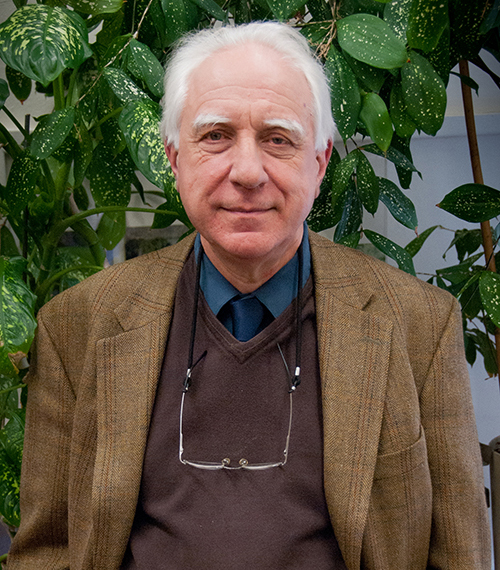Radical Democracy as the Human Condition
What is the business of education – convincing people or allowing them to make up their own minds? What are we to do with people who do not make the choices we make?
By Hervé Varenne

[ Post-Election America: Read more commentary on the election from Teachers College ]
I must say I was astonished. My take then, and I have not changed my mind, was that Cremin asks something surprising from us who are given the task to design education for the public. He asks us to pay attention to what people are doing, in the streets and alleys of the world, far from the halls where pedagogy and curriculum are discussed.
Cremin asks something surprising from us who are given the task to design education for the public. He asks us to pay attention to what people are doing, in the streets and alleys of the world, far from the halls where pedagogy and curriculum are discussed.
I was astonished that my colleague had not noticed that Cremin was asking us to look at the crowds around us, and that he was criticizing the John Dewey of Democracy and Education ([1916] 1966) for not imagining any other educational institution than the State-sponsored school. I could see how a very unsympathetic critic might notice that Dewey, as a philosopher who also read the psychologies and social sciences of his time, was quite sure as to what to teach the masses settling in the United States that they should learn to participate in an American democracy. By Chapter 7, Dewey, unapologetically, claims an aim, a “Good Aim.” In brief, in language Teachers College still uses (though we might wonder about mention of a “social ideal” and the measurement of “the worth of a form of social life”):
Since education is a social process, and there are many kinds of societies, a criterion for educational criticism … implies a particular social ideal. The two points selected by which to measure the worth of a form of social life are the extent in which the interests of a group are shared by all its members, and the fullness and freedom with which it interacts with other groups. An undesirable society, in other words, is one which internally and externally sets us barriers to free intercourse and communication of experience. A society which makes provision for participation in its good of all its members on equal terms and which secures flexible forms of associated life is in so far democratic. Such a society must have a type of education which gives individuals a personal interest in social relationships and control, and the habits of mind which secure social changes without introducing disorder. (p. 99)
As we ponder the questions, we must face the fact that philosophers cannot control people, even when they are very influential on matters of state authority. That, I’d say, is what a century of anthropological research has demonstrated.
It is probably the case that Cremin would not have disagreed with this. Cremin’s concern was with Dewey’s next step, when he gets to assume that the institution of desirable education is the public school. I was then starting my career in a department soon to be named “Family and Community Education,” which Cremin had been instrumental in creating and which he strongly supported. With scholars such as Hope Leichter, Paul Byers and Ray McDermott, we wondered about what might count as education in families and communities. I do not remember us wondering much about who might control this education, assess the worth of the design, or worry that the education parents given their children, each other, friends and consociates, might not be desirable.
Thirty years later, I was introduced to the work of Jacques Rancière who, in many ways, offers a scorched-earth critique of philosophers-with-an-aim, particularly philosophers of education. Rancière starts with the Plato of the Meno. He sides with the various shoemakers whom generations of philosophers have used as example of people who should not be involved in what we know call “knowledge production,” and even less in the teaching of this expert knowledge. Rancière keeps asking philosophers to pay attention to, and respect, shoemakers.
Rancière’s work, like Cremin’s, is very congenial to the generations of anthropologists who have tried to tell other social scientists and philosophers that all human beings produce knowledge, pass on knowledge, transform other forms of knowledge they may encounter and, of course, make different value choices about aims and are ready to fight for these.
Rancière is also writing about “democracy and education,” but from the point of view of a radical democrat. Rancière’s hero is a teacher who refused to teach his expertise because he believed teaching what one knows will always be a form of “stultification,” or brain-washing—particularly if the “learner” is assessed as having (not) learned just what she was supposed to learn not only as knowledge or skills but also as dispositions (beliefs, attitudes, values).
And so, whether one deplored or celebrated what happened last week, we, as the philosophers of education we cannot help but be, must ask ourselves: what is our business. Is it convincing or is it allowing people to make up their mind? And what are we to do with people who do not make the choices we make?
As we ponder the questions, we must face the fact that philosophers cannot control people, even when they are very influential on matters of state authority. That, I’d say, is what a century of anthropological research has demonstrated. Radical democracy may be the human condition.
Hervé Varenne is Professor of Education and Chair of the Department of International & Transcultural Studies at Teachers College
Published Monday, Nov 14, 2016